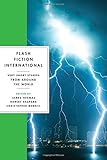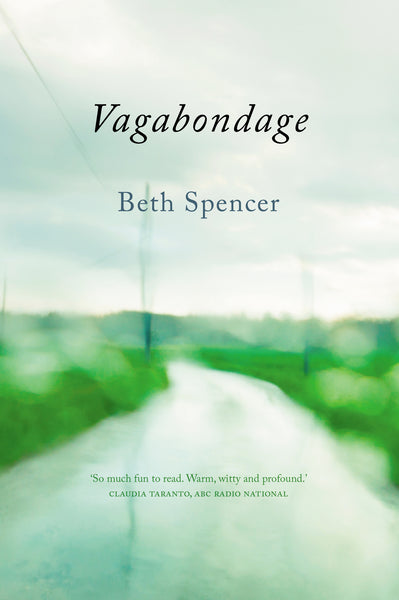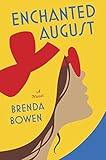 “Night Drive” by Rubem Fonseca of Brazil is a Stephen Kingish story that shows the Mr. Hyde side of a seemingly benign Dr. Jekyll. Another story that I admire, “The Snake” by Eric Rugara of Kenya, is, on the surface, a picture of family cooperation to band together promptly to rid their home of a snake. It may also be a metaphor for the power of united action against any creeping threat. With eighty-six stories to choose from it is easy for a reader to find something s/he likes in this collection.
“Night Drive” by Rubem Fonseca of Brazil is a Stephen Kingish story that shows the Mr. Hyde side of a seemingly benign Dr. Jekyll. Another story that I admire, “The Snake” by Eric Rugara of Kenya, is, on the surface, a picture of family cooperation to band together promptly to rid their home of a snake. It may also be a metaphor for the power of united action against any creeping threat. With eighty-six stories to choose from it is easy for a reader to find something s/he likes in this collection.
Graham Stull on The Hydra
The author of The Hydra reads from and talks about his new novel and where his ideas for it came from, about his biologist turned Frankenstein protagonist Brian Matterosi, on viral engineering, genre fiction, indie publishing, distopias, population and ecology,…
A review of Vagabondage by Beth Spencer
 Though the poetry is easy to read and instantly accessible, the work operates on several levels. There is the political: the woman dispossessed, unable to afford rising Melbourne property prices (and a later nod to the global financial crisis; there is the spiritual: the idea of letting go of attachments and expectations: “I am a whisper/of butterflies”; and there is the tangible: the poet’s attempts to make a coherent life and create meaning during this period of intransience.
Though the poetry is easy to read and instantly accessible, the work operates on several levels. There is the political: the woman dispossessed, unable to afford rising Melbourne property prices (and a later nod to the global financial crisis; there is the spiritual: the idea of letting go of attachments and expectations: “I am a whisper/of butterflies”; and there is the tangible: the poet’s attempts to make a coherent life and create meaning during this period of intransience.
A review of The Hydra by Graham Stull
 Stull creates a character memorable and believable enough to draw the reader in as the complex web surrounding Matterosi’s backstory, narrated as a confessional tape, mingles with the unfolding events through the trial. The plot is super fast paced, with enough cliffhangers, a touch of romance, and plenty of excellent and very well informed science (think Atwood in Oryx and Crake) to keep the pages turning faster than you can say “overpopulation.”
Stull creates a character memorable and believable enough to draw the reader in as the complex web surrounding Matterosi’s backstory, narrated as a confessional tape, mingles with the unfolding events through the trial. The plot is super fast paced, with enough cliffhangers, a touch of romance, and plenty of excellent and very well informed science (think Atwood in Oryx and Crake) to keep the pages turning faster than you can say “overpopulation.”
A review of Sweetwater Blues by Raymond L. Atkins
 Atkins builds Cray as a complex young man capable of intense loyalty, instinctive physical responses that surprise, and deep thought. Cray’s father plays an important role in the novel, as his presence offers the reason we don’t follow the usual path of prison life.
Atkins builds Cray as a complex young man capable of intense loyalty, instinctive physical responses that surprise, and deep thought. Cray’s father plays an important role in the novel, as his presence offers the reason we don’t follow the usual path of prison life.
A review of Casino Women by Susan Chandler and Jill B Jones
 It’s pretty rare these days to find something that offers such rich descriptions of the labor forces in the world’s most lucrative industries. The experiences are genuine and highlight themes like intellectual frustration, exploitation, and physical pain, common issues encountered by female workers in casinos, but more importantly, female workers throughout all sectors.
It’s pretty rare these days to find something that offers such rich descriptions of the labor forces in the world’s most lucrative industries. The experiences are genuine and highlight themes like intellectual frustration, exploitation, and physical pain, common issues encountered by female workers in casinos, but more importantly, female workers throughout all sectors.
A review of A Short History of Stupid by Bernard Keane and Helen Razer
 This is a book that is delightfully vulgar, bravely contrary, openly critical of media, government (especially the current one), the news, television in general, new age clap trap, and pretty much everything else. If they err on the side of being just a little too confident that they’re smarter than the average bear, it’s probably because they are. A Short History of Stupid is a panacea to all the soft serve we’re fed on a regular basis.
This is a book that is delightfully vulgar, bravely contrary, openly critical of media, government (especially the current one), the news, television in general, new age clap trap, and pretty much everything else. If they err on the side of being just a little too confident that they’re smarter than the average bear, it’s probably because they are. A Short History of Stupid is a panacea to all the soft serve we’re fed on a regular basis.
Ben Okri on The Age of Magic
Ben Okri joins us live from the Sydney Writers Festival to read from and talk about his latest novel The Age of Magic and what inspired it, its characters, on the true nature of magic, on the book’s themes incuding what Goethe calls des…
A review of Memory Painter by Gwendolyn Womack
 Despite all that, the author makes the story come together and the book is a light fun summer read, especially for those who like dabbling in reincarnation stories. Being a historical fantasy with a spiritual sub-plot the story also brings past social mores, politics, and people from far-flung places to life, as the reader and protagonists rush about from ancient Egypt, through Russia, to other parts unknown.
Despite all that, the author makes the story come together and the book is a light fun summer read, especially for those who like dabbling in reincarnation stories. Being a historical fantasy with a spiritual sub-plot the story also brings past social mores, politics, and people from far-flung places to life, as the reader and protagonists rush about from ancient Egypt, through Russia, to other parts unknown.
A review of Enchanted August by Brenda Bowen
 In Bowen’s Enchanted August, Lottie and Rose are New York mothers of young children, dissatisfied at the way their lives are working out. Lottie’s husband seems to have lost interest in her. Rose’s husband is writing thrillers under a pseudonym, but her poetic talent has been overshadowed by her maternal role. The two women meet at the bulletin board of their children’s preschool, both drawn to a notice about a Maine cottage for rent for August.
In Bowen’s Enchanted August, Lottie and Rose are New York mothers of young children, dissatisfied at the way their lives are working out. Lottie’s husband seems to have lost interest in her. Rose’s husband is writing thrillers under a pseudonym, but her poetic talent has been overshadowed by her maternal role. The two women meet at the bulletin board of their children’s preschool, both drawn to a notice about a Maine cottage for rent for August.